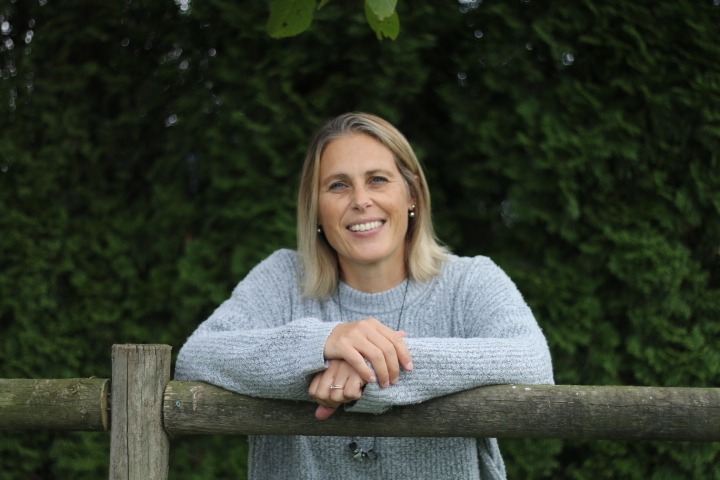
Last summer my husband and I were hiking with my sister and brother-in-law along an old forest service road. I was deep in thought about our conversation when my brother-in-law leaned forward and said to me, “You know, Lisa, if we were on our bikes I’d tell you to stop half-wheelin’.” My brother-in-law, who is an avid cyclist, was pointing out that I had an annoying habit of walking just slightly ahead of the group.
I immediately related to the experience he was talking about, but until that moment, I did not know a term for the phenomena. It applies to hiking, cycling, running, paddling – you name it. One person moves just a bit ahead of the other. If the person in the back speeds up, so does the person in the front, maintaining an annoying half-wheel or half-step lead in an otherwise non-competitive setting.
For the person in the back, half-wheeling creates a perpetual sense of being behind, being not quite fast enough, being almost there but never dead-even. Despite both people travelling at the same speed, one always tends to feel a bit less than. Being a half-wheel or half-step behind feels super frustrating and discouraging.
This experience got me thinking about the many times I’ve heard people describe anxiety that stems from thinking they are not quite enough in some way. These expressions often come in the form of “if only…I’d be enough” statements. If only I was ten pounds lighter, I would be pretty enough. If only I was more patient, I would be a good enough parent. If only I was more disciplined in reading the Bible and praying, I would be a good enough Christian. If only I explained myself better, I would be understood (enough). If only I didn’t make that mistake, I would be competent enough. The examples are unending.
Each statement presents a condition and a promise. If only [the condition], I would be [promised outcome] enough. This way of speaking (and thinking) assumes specific obstacles are blocking our ability to be enough, as though “enough-ness” is something to be earned. If we meet the condition, we gain the status of being enough – enough to matter, enough to be accepted, enough to belong, enough to be loved.
The approach might seem empowering at first glance – meet the condition, gain what you need – awesome. The illusion of control gives hope. But upon further analysis, the futility of this pursuit becomes lucid. The “if only…I’d be enough” mantra is as rigged as a carnival game.
To recognize the deception, we need to notice the sneaky overshoot in this way of thinking. It doesn’t just promise we will gain logical benefits from our efforts, the “if only…I’d be enough” mantra promises so much more. It advertises that if we take actions we can control, we will be guaranteed outcomes beyond our control. If we improve our health, we will be accepted. If we contribute, we will belong. If we do better, we will matter. If we stop making mistakes, we will be loved.
I can almost hear the carnival game host saying, “All you have to do is pop three balloons with these six darts, and you will win the five-foot stuffed bear.” What he doesn’t mention, however, is the tips of the darts are dull and the balloons are under-inflated, so even if the dart hits the target, the balloon is unlikely to pop.
According to teachings in the Bible, our lovability is not up for grabs. The gospel – the good news of Christ – is, God loved us so much that He made a way for us to be reconciled to Him which isn’t dependent on us being enough. Through Christ’s atonement, we are accepted, we belong, and we are loved despite our inability to earn these things. Through Christ, we are gifted security for our deepest relational needs.
If we grasp the depth of what is settled in Christ, we will enter into a very different type of living. Living out of fullness is antithetical to scrambling for acceptance and love. When the questions of our acceptance, love, belonging, and importance are settled, we engage in relationships not to earn approval, but to experience life with others. We give not to assure ourselves we are needed, but because we enjoy the magnitude of generosity extended to us. We engage in life or overcome challenges not to prove ourselves, but to learn, grow, satisfy curiosity and pursue interests. Do you hear the difference?
In the first two chapters of Ephesians, Paul writes that through Christ, (not through our efforts), we are brought near to God, we belong to His household as His children, and we’re lavished with His grace, mercy, and kindness. The reason the gospel is good news is we don’t have to be enough to qualify.
In the third chapter of Ephesians, Paul prays the result of Christ living in the hearts of those who believe in Him would be the power to grasp the width and length, height and depth of God’s love. Why? Because to know this – to be settled in this – leads to being filled by the very fullness of God.
Living out of this fullness protects us from the carnival game. It debunks the myths that propel us to try to catch up, prove ourselves, and believe “if only…I’d be enough”. The truth in Christ is, we already are enough. We already qualify for acceptance and love from the One who handcrafted us and delights in us.
We don’t have to play the rigged game. We don’t have to race to keep up with someone a half-wheel ahead. We don’t have to entertain the thoughts taunting us to do more and be more to be enough. Instead, we can choose to rest in our settled account and live out the freedom fostered by fullness in Christ.
Sometimes having a concept explained leads to novel outcomes. Sometimes just hearing you don’t have to comply with old thought patterns is freeing. Sometimes being reminded of the powerful truths about God can illuminate a new path. But other times, new learning stirs up a dust cloud of emotions which needs a little help before rest can be found. If this is the case for you, feel free to contact us at help@mercyseatministry.ca. Our therapists are available to help.
If you found this article helpful and would like to find healing and freedom for yourself, discover how Mercy Seat Ministries can help.

Lisa is a Certified Canadian Counsellor with over 20 years experience. Her passion is to integrate faith-based practices with effective psychological tools to assist people toward healing and freedom in Jesus Christ.
